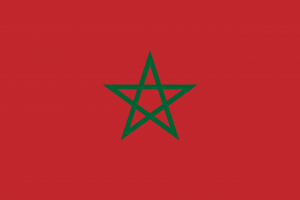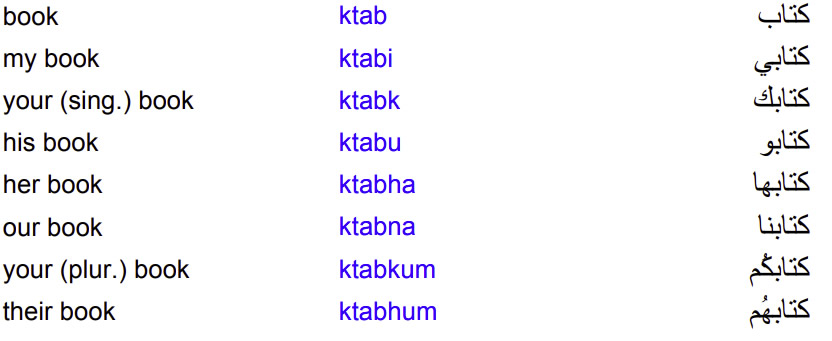Difference between revisions of "Language/Moroccan-arabic/Grammar/Possessive-Pronouns"
< Language | Moroccan-arabic | Grammar
Jump to navigation
Jump to search
(Created page with "thumb <div style="font-size:300%;"> Possessive Pronouns in Moroccan Arabic</div> In Darija, a suffix (ending) may be added to the en...") |
|||
| Line 1: | Line 1: | ||
[[File:Arabic-Language-PolyglotClub.png|thumb]] | [[File:Moroccan-Arabic-Language-PolyglotClub.png|thumb]] | ||
<div style="font-size:300%;"> Possessive Pronouns in Moroccan Arabic</div> | <div style="font-size:300%;"> Possessive Pronouns in Moroccan Arabic</div> | ||
Revision as of 23:09, 22 September 2021
Possessive Pronouns in Moroccan Arabic
In Darija, a suffix (ending) may be added to the end of words in order to express possession.
Possessive Pronouns
* For the “my” and “his” forms, the first ending is used for words ending in consonants, while the second is used with words ending in vowels. For example, smiti (my name), but xuya (my brother).
Example of possessive pronouns with the noun “book.”
Sources
https://fsi-languages.yojik.eu/languages/PeaceCorps/Arabic-Moroccan/MO_Arabic_Language_Lessons.pdf


